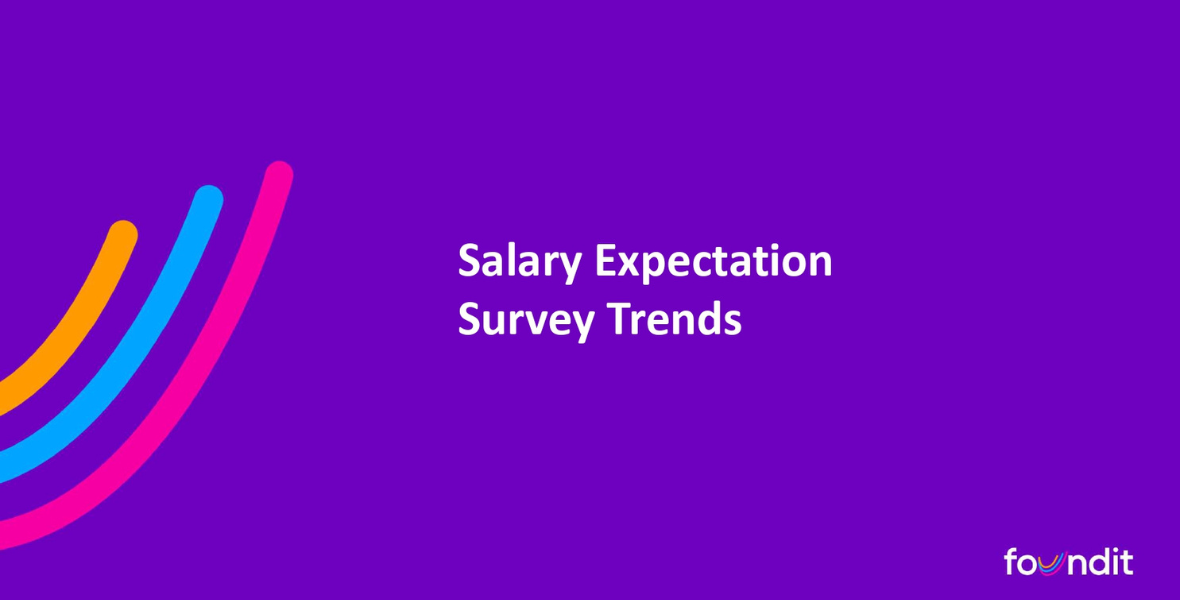

Bengaluru, 27th February 2025: A recent survey by jobs platform, foundit (formerly Monster APAC & ME) reveals evolving employee perceptions regarding salaries, appraisal expectations, and future compensation trends across key industries in India. The job market highlights a significant divide in salary satisfaction, with a large portion of professionals feeling dissatisfied with their compensation growth, while professionals in select industries reporting higher contentment levels. According to the survey, 47% of professionals are not satisfied with their salary growth, citing low increments and unfulfilled expectations. Meanwhile, 25% of respondents remain neutral — while they acknowledge limited salary growth, they do not see it as a pressing concern.
“The survey findings underscore a significant gap in awareness regarding industry salary benchmarks, with many professionals anticipating stronger compensation growth,” said V Suresh, CEO of foundit. “While optimism remains high across industries, early-career professionals continue to encounter challenges in salary progression. To attract and retain top talent in this dynamic landscape, organizations must prioritize upskilling initiatives, structured career advancement pathways, and competitive compensation strategies.”
Salary Perception Across Experience Levels
Only 46% of respondents believe their salary is above average, while 40% feel it is below industry standards. Notably, 14% remain unaware of salary benchmarks in their field.
Overall, as professionals gain experience, salary awareness improves, and dissatisfaction steadily declines.
Satisfaction with Salary growth
47% of professionals are not satisfied with their salary growth, with the highest dissatisfaction among entry-level professionals (0–3 years). IT roles make up the largest share of dissatisfaction (26%).
28% are most satisfied, with Engineering & Production (18%) and IT-Software (14%) leading.
25% remain neutral, indicating mixed perceptions of salary progression.
Expected Salary Growth from Appraisal
Entry-level professionals are the most polarised—while 20% expect a minimal hike (0–10%), a notable 11% anticipate a high appraisal (30%+). This reflects both early career pay stagnation and strong optimism among a select group.
Mid and senior-level professionals show balanced expectations, with most anticipating moderate growth (11–20%). Large raises (21%+) are less commonly expected at these levels, signaling realistic salary outlook as careers progress.
Few professionals expect significant salary hikes (21–30%), and those who do are primarily in mid-career roles.
High appraisals (30%+) are most expected at the entry and junior levels, but expectations for such raises sharply decline at senior levels, reinforcing slower salary progression at leadership positions.
Salary Changes Over the Past Three Years
59% of professionals saw minimal salary growth over the past three years, indicating slow wage progression for a majority.
28% reported significant salary increases, showing strong growth in select roles.
13% reported no change in salary, highlighting stagnation for a small segment of the workforce.
Future Salary Expectations: Industry Outlook
Overall, 77% of professionals anticipate significant salary growth in their industry, while 20% expect no change and only 3% foresee a decline.
Entry-level professionals remain the most optimistic, with 35% predicting moderate to significant growth, particularly in the IT-Software (20%) and BFSI (17%) sectors. Strong salary growth expectations are also evident among Engineering & Production (23%) and IT (18%) professionals.
Mid-level (12%) and junior-level (13%) professionals also expect moderate growth, reflecting industry-specific trends.
In contrast, only 7% of executives (15+ years of experience) anticipate salary growth, indicating potentially slower salary progression at leadership levels. Notably, only 9% of entry-level professionals foresee no salary growth, while mid and senior levels (2–4%) report lower expectations. This suggests limited concerns about salary freezes across the broader workforce.
Key Drivers of Salary Trends
| Key Drivers | % of Respondents |
| Skills in Demand | 35% |
| Industry-Specific Challenges | 19% |
| Economic Trends | 17% |
| Technological Advancements | 17% |
| Government Policies &
Regulations |
6% |
| Other Factors | 6% |
Skills in demand (35%) is the biggest salary driver—specialised and emerging skills command higher pay.
Industry-specific challenges (19%) like market fluctuations and sector constraints are shaping compensation trends.
Economic trends (17%) and technological advancements (17%) are reshaping salaries, particularly in fast-evolving industries.
Government policies (6%) and company-specific factors (6%) have a smaller but notable impact, influencing salary structures through labor laws, tenure-based pay, and internal policies.
Read more: Taboola Partners with LINE, Powering Recommendations and Ads for LINE Plus Globally